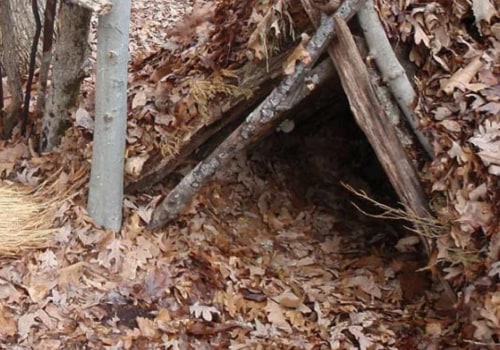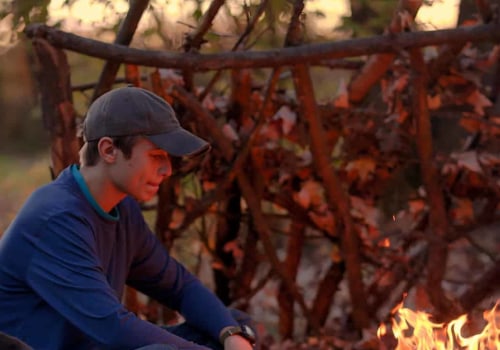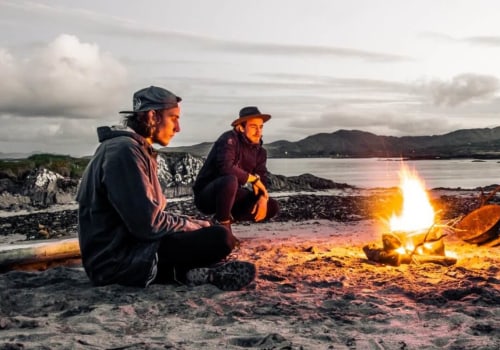In order of importance, the seven priorities are positive mindset, first :-) aid, , , signage, and . It's very important to know how to properly rank your priorities in a . Just as several injured people would be separated according to the urgency in a first-aid scenario. The Rule of 3 for Helps a Lot.
How do we know what is more urgent? The of 3 is an easy way to remember potential challenges and the time frame available to address . The first rule is that there are no rules, :-) only rough guidelines. That's why I've taken 3 out of the rule of three to show a wider time range for different people and situations. I highly recommend having knowledge and training in first aid in wilderness areas, but common sense can also help you discern between urgent problems and stable minor problems.
Signage isn't as urgent as first aid or , but you should be prepared to call for help as soon as :-) possible. You never know when the next opportunity to send someone a signal might present themselves. Try to find high ground to send an emergency text message if there are mobile phone towers nearby. Signal fires, signal mirrors, whistles, flares and plbs should be used where appropriate.
is used by most processes in the :-) human body, so naturally it is one of the most important needs. Suspicious is better treated, but drinking dirty is better than dying from . Stay away from with obvious signs of toxicity, such as dead and unvegetated animals. Your need for will vary greatly depending on the and humidity of the environment and :-) your activity levels.
Our bodies are naturally prepared for short periods of starvation, which is why they tend to accumulate fat. Very few short-term situations require . If you have been abandoned on a remote island :-) with no prospect of being rescued in the coming weeks or months, is a priority, but in most cases purchasing is not. Use common sense and act according to your unique circumstances and needs.
The rule of the 3 mnemonics is just a guide; know your limits. Most people who get lost in the forest are found within 24 hours, as long :-) as they stay in place. Following unknown leads can be deceptive and will likely make it harder for rescuers to find. If you ever find yourself in a situation of in the wild, you should think carefully and prioritize your actions.
, , signs, and are the 5 best-known priorities in a . I also like to add a positive mindset and first aid to these priorities. First aid may not always be needed, but when you or a :-) member of your group is injured, your first priority should be to care for them. can have multiple uses in a wilderness emergency.
It can provide warmth, it can boost your morale and give you a sense of security, :-) it can provide a method of signaling, and it can help provide purified and a medium for cooking . You can survive a few days without . Thirst and hunger are enemies of that can really depress your positive mental attitude. Try to find a clean source.
If you have a means of boiling from a lake or river, you can avoid getting internal parasites that :-) can cause disabling intestinal problems. Use a cloth and pick up the dew or pick up some rain. is the Least Important Nature . A person can survive for weeks without eating.
Try to conserve your body's energy reserves. It might be better to rest than aimlessly seek , and :-) even if you find , you may have exhausted more energy than can give you. If you can easily buy , do so. If you can't find , don't worry about .
You need to digest . The definition of is a person's ability to stay alive in dangerous situations where there is a likelihood of death. Gordon is a :-) former member of the First Command Regiment of the Australian Army and is currently a instructor at NORFORCE, a Regional Force Surveillance Unit (RFSU) of the Australian Army Reserve. Using the above in nature will help increase your chances of staying alive.
Sam Fury has had a passion for , evasion, resistance and escape (SERE) training since he was a child growing up in Australia. Having a list of priorities, such :-) as PLAN, helps us to think rationally and formulate a clear path of action, spending energy on the most important things first, preventing us from wasting valuable time and resources on less important tasks. There are countless examples of people who have survived the initial impact :-) of the particular isolation event, but who then didn't know what to do next and prioritized doing things incorrectly in the wrong order, which led to the situation :-) getting much worse. Follow these seven steps in order and you will greatly increase your chances of surviving in the wild or in the countryside if things go wrong (if you get lost, if someone gets injured, or the weather takes a nasty turn).
The of Three and Seven Priorities should be used as a guide to creating the best :-) chances of . Knowing the 7 priorities for in emergencies, such as getting lost in the desert, will help you stay alive. Rarely does become a problem in a thanks to modern search and rescue techniques. Gordon is also a Combat SERE ( Evasion Resistance Escape) instructor and regularly teaches courses at the RAAF Combat Training School.
Your chance of is determined by :-) your knowledge of the things you should or shouldn't do. You may also need to navigate to other areas in order to address and find all of your priorities mentioned above, so you need some way to be able to orient :-) yourself, travel and get back to your starting point. In addition to prioritizing important tasks first in an isolation event or , this same type of prioritization mentality can be advantageous in normal life and in business to help you focus on what :-) needs to be done rather than wasting time and money on things that don't. .







Leave Reply